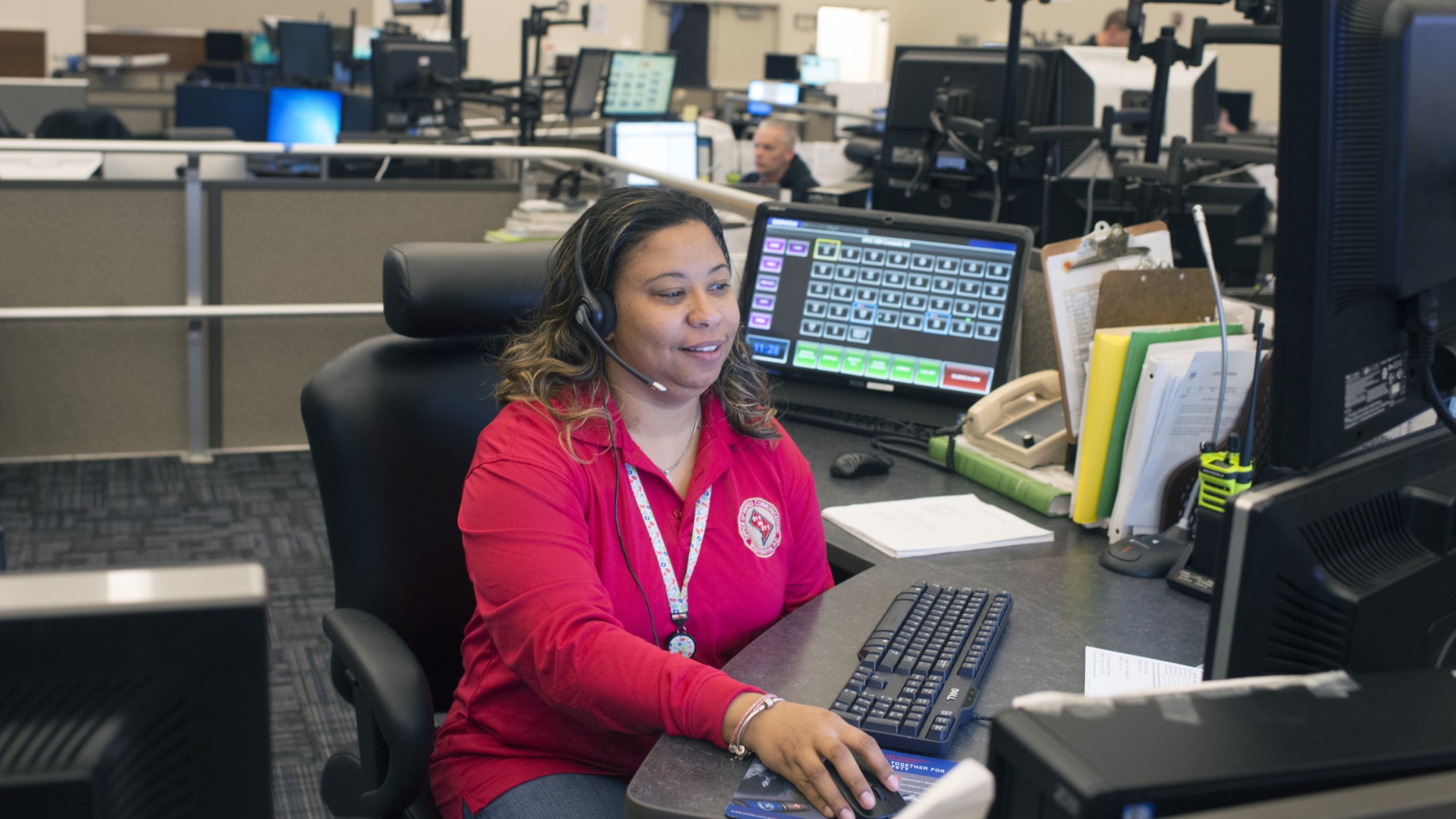Public Safety Telecommunicators
Communications Officer, Communications Operator, Public Safety Dispatcher, Telecommunicator
What they do:
Operate telephone, radio, or other communication systems to receive and communicate requests for emergency assistance at 9-1-1 public safety answering points and emergency operations centers. Take information from the public and other sources regarding crimes, threats, disturbances, acts of terrorism, fires, medical emergencies, and other public safety matters. May coordinate and provide information to law enforcement and emergency response personnel. May access sensitive databases and other information sources as needed. May provide additional instructions to callers based on knowledge of and certification in law enforcement, fire, or emergency medical procedures.
On the job, you would:
- Provide emergency medical instructions to callers.
- Question callers to determine their locations and the nature of their problems to determine type of response needed.
- Determine response requirements and relative priorities of situations, and dispatch units in accordance with established procedures.
Knowledge
Safety and Government
- public safety and security
- law and government
Arts and Humanities
- English language
Communications
- telecommunications
- multimedia
Business
- customer service
Skills
Basic Skills
- listening to others, not interrupting, and asking good questions
- talking to others
Social
- understanding people's reactions
- changing what is done based on other people's actions
Problem Solving
- noticing a problem and figuring out the best way to solve it
Abilities
Verbal
- communicate by speaking
- listen and understand what people say
Attention
- pay attention to something without being distracted
- do two or more things at the same time
Ideas and Logic
- notice when problems happen
- order or arrange things
Visual Understanding
- quickly compare groups of letters, numbers, pictures, or other things
Personality
People interested in this work like activities that include data, detail, and regular routines.
They do well at jobs that need:
- Stress Tolerance
- Self-Control
- Cooperation
- Cautiousness
- Integrity
- Attention to Detail
Technology
You might use software like this on the job:
Data base user interface and query software
- Microsoft Access
- National Crime Information Center (NCIC) database
Presentation software
- Microsoft PowerPoint
Helpdesk or call center software
- Computer aided dispatch software
- Spillman Technologies Spillman Computer-Aided Dispatch
Education
Education: (rated 2 of 5)
high school diploma/GED or
some college
usually needed
some college
usually needed
Job Outlook
Average
New job opportunities are likely in the future.
Explore More
- Dispatchers
- Emergency Medical Technicians
- First-Line Supervisors of Security Workers
- Paramedics
- Switchboard Operators, Including Answering Service
You might like a career in one of these industries:
See more details at O*NET OnLine about Public Safety Telecommunicators.





